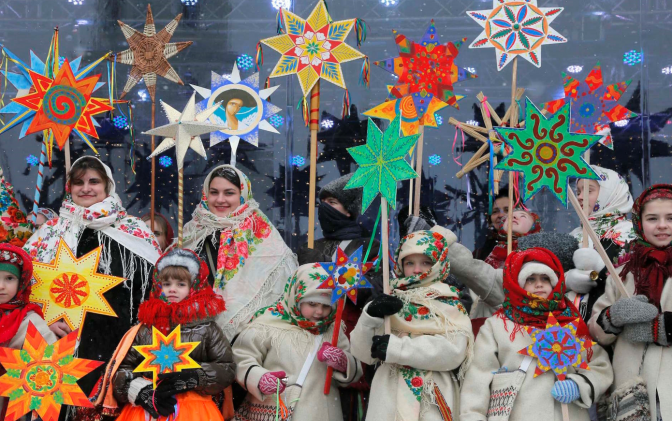
Nobody wants to give up their traditions
Lviv Now spoke with the priests of the Roman Catholic, Ukrainian Greek Catholic and Orthodox Churches and a doctor of philosophy to find out why Christmas is celebrated in different times and what prevents its unification among Christians.
Celebrating Christmas on two different dates is a matter of two civilizational approaches, according to Lyudmyla Fylypovych, Doctor of Philosophy, Head of the Department of Philosophy and History of Religion at the Hryhorii Skovoroda Institute of Philosophy of the National Academy of Sciences of Ukraine. The professor says that the calendars were initially reformed to eliminate the discrepancy between the church and astrological calendars.
«We have two civilisational approaches to this issue. Western Christians believe that Christmas should be celebrated from 24 to 25 December. This is due to the calendar reform carried out by Pope Gregory XIII in 1582, when there was a discrepancy between the astrological and ecclesiastical calendars. This difference is now 14 days,» – Lyudmyla Fylypovych.
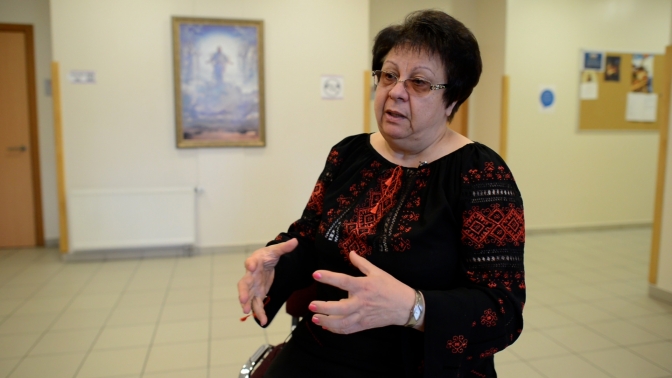
Read also: During Ukraine’s January Christmas, an American finds the soul of music. Video
Eastern Christians have not agreed to reform the calendars and continue to celebrate the old-fashioned Christmas because of the mystical perception of Christmas, the professor explains.
«Eastern Christians have not agreed to this reform and continue to celebrate Christmas according to the old calendar. First of all, we can say that this is due to the difference between the Western and Eastern mentality. The West is focused on modernism, pragmatism, and practicality. The East is kind of mystical. Some representatives of the Christian East may find special symbols in this and even believe that if the date changes, Christ will not be born,» – Fylypovych says.
Celebrating Christmas on a single date is problematic because Ukraine is on the border of different countries and civilizations, Lyudmyla Fylypovych continues. According to her, neither Eastern Christians, the majority of whom are in Ukraine, nor Western Christians will change the date.
«We can’t combine these two dates, because Ukraine is a border country where different traditions have always existed and met. Western Christian and Eastern Christian in particular. Nobody wants to give up their traditions. Western Christians do not want it because it is considered more practical and widespread in the Western world, and Orientals will stand to die so that it does not happen, because they will say that they are losing their identity.
Ukraine is a country with a predominance of Orthodox rites. Of our 37,000 registered religious communities, 25,000 belong to Eastern Christianity proper. Roughly speaking, these are tw0-thirds of all communities. Accordingly, the rites are celebrated in the old style. Although another one-third includes Muslims, Jews, and various other minorities,» – Lyudmyla Fylypovych, PhD, says.
Read also: The Armenian church in Ukraine celebrates anniversary with new art exhibition
Forced introduction of one date can evoke indignation among some Christians, and therefore it is not necessary to do it, Lyudmyla Fylypovych believes. At the same time, according to her, some Greek Catholics in Western countries celebrate according to the Gregorian calendar, meaning 25 December.
«It will not be possible to enforce 25 December. This can lead to rejection, abruption, struggle... However, not the entire Greek Catholic Church celebrates in the Eastern tradition. The Synod of the UGCC decided that Greek Catholics in Western European countries should switch to the so-called Catholic calendar and celebrate Christmas from 24 to 25 December. This is how Greek Catholics celebrate in Italy, Spain, and Portugal. This decision was made so as not to fall out of the general trend,» – the professor says.
Expecting when the dates of the celebration are unified and doing nothing is a feature of a post-Soviet man, says Lyudmyla Fylypovych. She is convinced that the initiative should come primarily from ordinary believers.
«Most people are waiting for a decision, whether a resolution from some abstract Central Committee or Plenum [supreme state organs in the Soviet Union]. It is worth working to push out our Sovietness and show initiative from below, to engage priests. They, in turn, should turn to the hierarchs, and they should make decisions for the whole Church and Ukraine,» – Fylypovych concludes.
The barrier between civilizations today is meaningless
All Christians celebrate Christmas 25 December, only in a different style, says Father Alexander-August Chumakov of the Salesian Order of the Ukrainian Greek Catholic Church, a former clergyman at the Lviv Theological Seminary of the Holy Spirit. According to the father, the discrepancy with the calendars was created artificially to separate Eastern Europe from Western Europe.
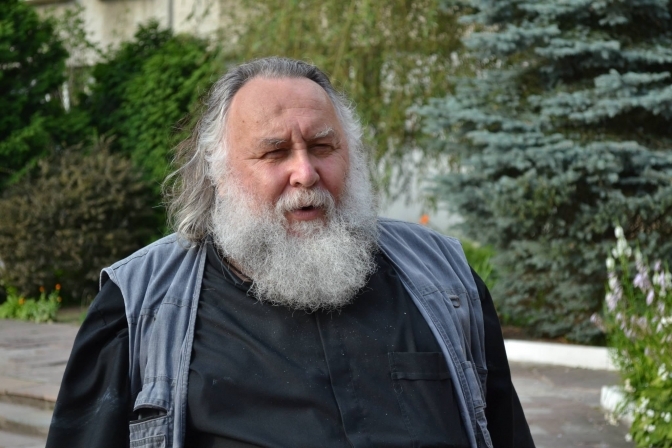
«It should be emphasized that all Christians celebrate Christmas 25 December, only in a different style. No one celebrates on January 7 – it’s just 25 December in the old-slyle. Centuries have passed since those dates had to be sorted out. This discrepancy with the dates arose artificially. In the sixteenth century, it was a barrier to civilization to separate the Western and Eastern worlds in an era of strife and war. At that time, the whole of Europe, Catholicism and Orthodoxy were at odds with each other,» – Father August says.
Artificial division has long ceased to exist, and if it were not for Covid-19, many Ukrainians would have celebrated Christmas on December 25 in Europe, Father August believes.
«In our time, these boundaries have long ceased to exist. Were it not for the Covid-19 epidemic, tens of thousands of Ukrainians would celebrate Christmas in Europe. There are no barriers, including civil barriers. We have affirmed our affiliation with Europe. It makes no sense to stay in the old style, which no one adheres to, including the clergy of the Orthodox Church. Today, almost the vast majority of Orthodox churches have switched to the Gregorian calendar. They celebrate Christmas on December 25 in a new style. And none of them thinks that because of this, Orthodoxy may be endangered in some way,» – Oleksandr-August Chumakov says.
It will be difficult to celebrate Christmas during the unified date, because a hybrid war is being waged against Ukraine and this pretext can be used to inflame conflicts, according to the Father.
«Nowadays, no one really remembers that the Julian calendar is an old style. Once a barrier between civilizations, not from God, but from people, today it is meaningless. However, it will be very difficult to organize these dates. On the one hand, people are used to a certain date – 7 January. On the other hand, everyone understands that we live in a hybrid war. And hostile propaganda will do anything to say that Ukraine has been sold to Catholicism. In order to shake and turn Ukrainians against themselves, this pretext will be used in particular,» – Father Oleksandr-August says.
Everything would change …
The celebration of Christmas 25 December is symbolic, because in the first centuries of Christianity, Christians sought to suppress pagan beliefs celebrated on the same day, according to Father Pavlo Oduy, a priest of St. Anthony’s Church, in the Roman, western rite in Lviv from the Order of Conventual Franciscans.
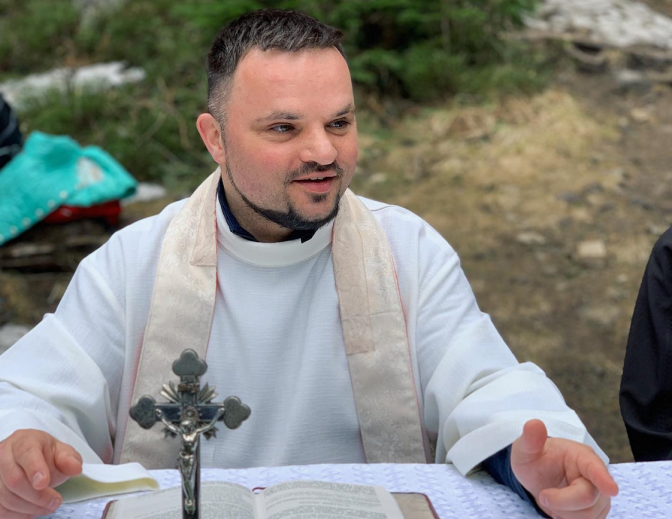
«25 December is a symbolic date. This is the first day when the length of daylight in the day ceases to decrease. In ancient times, this day was a pagan holiday – the birth of the sun god. Christians wanted to honour Jesus Christ as opposed to it. In particular, He is referred to as the Light of Justice, the Light of the World, the Light for the sanctification of the Gentiles. In particular, the apologists of the first centuries of Christianity, St. Justin and Tertullian, explain that Christ is the true light that overcomes darkness,» – Father Pavlo Oduy says.
Read also: All saints day. Lviv Dominican on how to perceive the ‘art of death’
There was no celebration of Christmas in the beginning of Christianity, it began in the fourth century. Instead, the Epiphany was celebrated, says Father Pavlo Oduy.
«The very feast of the Nativity of Christ was not at all present at the beginning of Christianity. Such was the Epiphany, which is celebrated in the Latin rite 6 January. It was more celebrated. The celebration of the Nativity of Christ began in the IV century. But this day is also more conditional, not exactly December 25. Because neither the Gospel nor other sources mention the birth of Jesus on a particular day. The birth of Jesus marks a new era. But in fact, there is a mistake. The compilers were wrong for seven years. That is, Jesus was born seven years before Jesus,» – Father Pavlo says.
The decision to change the date of the celebration is a political one, Father Pavlo believes. One change in the date of the celebration of Christmas will not be limited, and whether the Eastern Church will agree to change the entire calendar – is doubtful, says Father Paul Oduy.
«In my opinion, this is a political decision – not to unify the celebration of Christmas 25 December. However, in any case, it would cause confusion. Because other holidays are also associated with Christmas. It changes everything, the calendar changes by 2 weeks. It would be necessary to transfer everything and make one calendar, but I do not know if the Eastern Church would like that. It seems to me that it is not very much,» – Father Pavlo says.
It’s not just Christmas
Archimandrite Markiyan Kayumov, rector of the Church of Peter and Paul of the Ukrainian Orthodox Church in Zhovkva, considers it impossible to move the celebration of Christmas to 25 December, because this is already a regular and customary time of celebration.
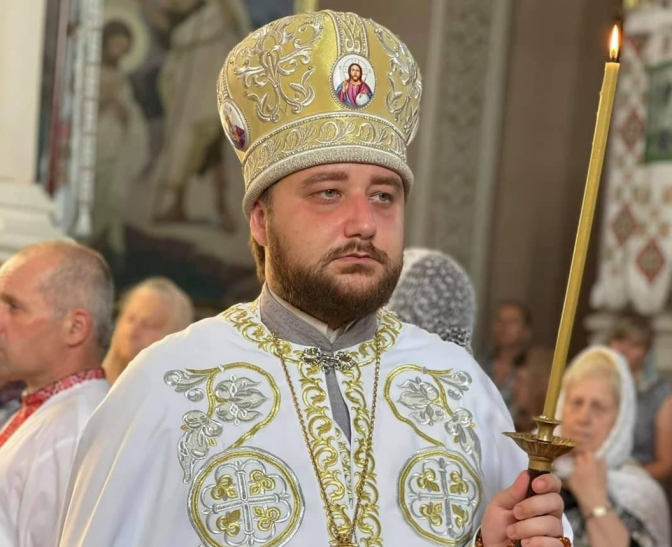
«Currently, this is impossible, because we need to understand that it is not just Christmas that is postponed, but all church dates are what we are used to. People are constantly distinguished by religion, language, and here also through Christmas. So I would say it’s out of time. At one time these were calendar reforms. It so happened that at one time, Ukraine did not stick to them,» – Father Markiyan claims.
Read also: «Avoid quarrels, pray, and do not hold a grudge.» eastern rite Christians start the Christmas fast
The choice to change the celebration should be made in 80 years, because the Julian calendar will shift by another day, he says.
«Although we are used to certain dates, we must understand that in 80 years, we will have to change in any case. In 80 years, the Julian calendar, now used by the Eastern Church, will change again for a day. We will have Christmas 8 January and all other holidays will also be postponed. By this date, it will be necessary to finally decide and move to the Gregorian calendar, which is already used by most local Orthodox churches. Of course, it will be, but not now,» – the father summed up.
For reference:
Greek Catholicism, the majority religion of Lviv, Ukraine, is a Christian confession which acknowledges Catholic doctrine and is in communion with the Pope, but maintains Eastern rites and rituals, including married priests. It emerged in 1596, when a part of the Orthodox Church recognised the supremacy of the Pope. Later, the Ukrainian Greek Catholic Church (UGCC) became mostly localised in the Western Ukraine, becoming one of the markers of the national identity for the region’s population during Austrian, Polish and Soviet rule.
Currently, Kyiv is the center of Ukrainian Greek Catholic Church, under the jurisdiction of His Beatitude Sviatoslav Shevchuk, major archbishop of Kyiv-Galicia, and it is present in many regions of the country, though Galicia, where Lviv is, still remains its bulwark. It also has a strong presence among the Ukrainian diaspora, especially in parts of Canada, the United States, and Australia.
Roman Lamansky
Translated by Vitalii Holich
You can read a Ukrainian language version of this story here.
Follow Lviv Now on Facebook and Instagram. To receive our weekly email digest of stories, please follow us on Substack.
Lviv Now is an English-language website for Lviv, Ukraine’s «tech-friendly cultural hub.» It is produced by Tvoe Misto («Your City») media-hub, which also hosts regular problem-solving public forums to benefit the city and its people.












